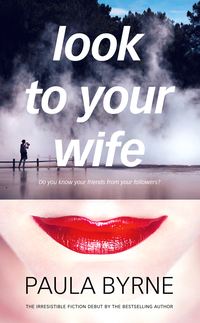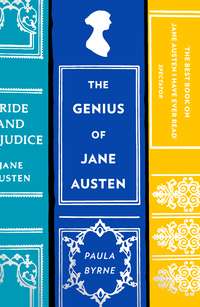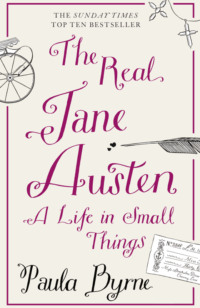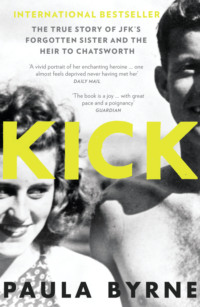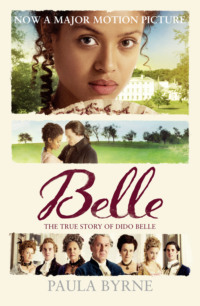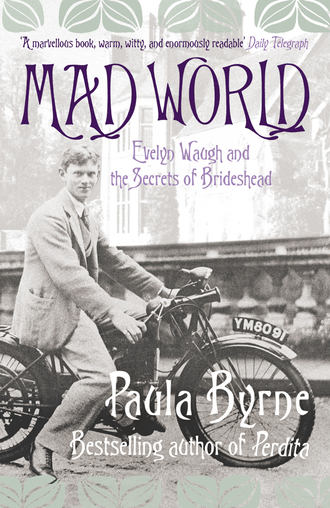
Полная версия
Mad World: Evelyn Waugh and the Secrets of Brideshead
CHAPTER 2 Lancing versus Eton
There was a scent of dust in the air; a thin vestige surviving in the twilight from the golden clouds with which before chapel the House Room fags had filled the evening sunshine. Light was failing. Beyond the trefoils and branched mullions of the windows the towering autumnal leaf was now flat and colourless … the first day of term was slowly dying.
So begins Evelyn Waugh’s unfinished story, Charles Ryder’s Schooldays, which was closely based on his experiences at Lancing College in Sussex. A scrim of nostalgia hazes his memory. It was not like this when he left for Lancing on a damp and overcast day in May 1917. Arriving in the summer term meant that it was very difficult for him to make friends. Furthermore, whereas most of the boys had been hardened to absence from home by prep school, for Evelyn it was his first experience of boarding. ‘I had lived too softly for my first thirteen years,’ he ruefully remarked.
The school itself was built high on the hills of the Sussex Downs, dominating the horizon with its huge chapel. ‘Lancing was monastic, indeed, and mediaeval in the full sense of the English Gothic revival; solitary, all of a piece, spread over a series of terraces sliced out of a spur of the downs.’ That is how Evelyn described it in his autobiography. Its solitariness was of a piece with his own.
Ascension Day fell four days after he arrived. Having no idea that it was a school holiday, Evelyn had made no arrangements for family visits. No meals were served and it rained all day. The House Room was locked. It was the worst day of his life and he never forgot how wretchedly lonely he felt. He would bring up his own children to ‘make a special intention at the Ascension Mass for all desolate little boys’.
Waugh kept a diary during his first two unhappy years at Lancing. He later destroyed it. In part, his unhappiness was a direct result of war deprivations: ‘the food in Hall would have provoked mutiny in a mid-Victorian poor-house and it grew steadily worse until the end of the war’. Milkless cocoa, small portions of tasteless margarine, bread and foul stew constituted the very best of the fare. School textbooks were war issue, printed on thin greyish paper and bound in greasy, limp oilcloth, something that offended his taste for fine binding and hand-printed paper.
Many of the best young masters were fighting in the war, and the boys were made conscious of the sacrifices made daily by old boys and schoolmasters: ‘On Sunday evenings the names were read of old boys killed in action during the week. There was seldom, if ever, a Sunday without its necrology. The chapel was approached by a passage in which their photographs were hung in ever-extending lines. I had not known them, but we were all conscious of these presences.’
Evelyn’s natural fastidiousness and his love of panache also contributed to his unhappiness. He recoiled against the poor table manners of his schoolmates, as they dirtied their napkins and flicked pats of margarine to the high oak rafters. Afternoon bathing was another source of agony, as the boys were forced to share tepid muddy bath water. The latrines were ‘disgusting’ and lacking in privacy – they had no doors. Rather than waiting his turn, which involved shouting out ‘After you’ to boys from other Houses, Evelyn preferred to make himself excused during lesson time, for which he paid the punishment of writing twenty-five lines.
He was placed in Head’s House, the most prestigious in the school, with the headmaster H. T. Bowlby serving as housemaster, a privilege that cost an extra £10 per year. Evelyn found the school rules bewildering and absurd. For the first two years, boys were dressed in subfusc (black), then they wore coloured socks, then in the sixth form coloured ties. All first years were prohibited from walking with hands in pockets. For the second year they could be inserted, but with the jacket raised, not drawn back. Older boys in year two were permitted to link arms with a ‘one-year man’, but not the other way round. Only school prefects could walk in the Lower Quad. Treading on grass was generally forbidden. Many vivid details of this sort were captured in Charles Ryder’s Schooldays, together with schoolboy slang, such as ‘dibs’ for prayers and ‘pitts’ for bedrooms. Evelyn was distressed by the dearth of female company.
When the war came to an end, school life changed for the better. Evelyn felt more settled. Food, always of vital importance in the life of a schoolboy, improved greatly. The Grub Shop now offered whipped-cream walnuts, cream slices, ices, chocolate and buns of every kind. One of the privileges for older boys was the ‘settle-tea’ that each senior member of House Room gave in turn. Hot, buttered crumpets were served in abundance, followed by cake, pastries and, in season, strawberries and cream. Senior boys had their own private studies and tea ceremonies: ‘we were as nice in the brewing of tea as a circle of maiden aunts’. They ordered their teas from London and ‘tasted them with reverence, discoursing on their qualities as later we were to talk of wine’. They also ordered little pots of caviar and foie gras: ‘Fullness was all.’
Respected masters returned from the war. Among them was the legendary figure of J. F. Roxburgh, one of two greatly contrasting figures who dominated Evelyn’s adolescence. In his autobiography, he devoted a chapter to his ‘Two Mentors’. The other mentor was Francis Crease. Roxburgh and Crease represented the worldly versus the aesthetic life.
Evelyn’s interest in graphics – illuminated manuscripts, the design of borders and initials, calligraphy, elaborate scripts – led one of his tutors to approach local scribe, Francis Crease. Evelyn had already noticed Crease at chapel on Sundays. He was not a prepossessing figure. His high nose and pink and white skin made him seem mildly absurd. He was middle aged, effeminate and always dressed in soft tweeds. He had a delicate, mincing gait and spoke in a shrill voice. ‘Today,’ Waugh wrote in the more open era of the 1960s, ‘he would be identified as an obvious homosexual.’
Evelyn went to Crease’s home at Lychpole Farm for private lessons. He loved the visits, not only because they offered an escape from school, but also because he was drawn to Crease’s aesthetic creed. In the first lesson Crease threw up his hands and exclaimed: ‘You come to me wearing socks of the most vulgar colour and you have just written the most beautiful E since the book of Kells.’ This he clearly regarded as an inexplicable paradox. Thursdays became a high point of the week, not only for the lessons, but also for their aftermath: ‘the best part is when work is put away and we have tea in his beautiful blue and white china. It is such a relief to get into refined surroundings.’ Young Evelyn was especially impressed by this sensitive and highly cultured man’s devotion to his craft and his belief that ‘if one is ever going to do good work one has to give one’s life to it’.
Crease was invited to Underhill, the Waugh family home. A defining moment in Evelyn’s life came when he asked for Crease’s opinion of his father, Arthur Waugh. Crease replied: ‘Charming, entirely charming, and acting all the time.’ Evelyn asked his mother for her opinion and she ‘confirmed the judgement. My eyes were opened and I saw him, whom I had grown up to accept in complete simplicity, as he must have appeared to others.’
The relationship between mentor and pupil was terminated by what seemed to Evelyn a rather trivial incident. In Crease’s absence, he had used a quill knife and broken it. Crease had written a furious letter saying that he would never see him again and that Evelyn had broken not just his knife but, more importantly, his trust. A second letter came in the post, apologising for the first. But it was too late for Evelyn: ‘the wound did not heal … after the incident of the broken blade the old glad, confident morning light never shone on our friendship’.
But the person who really broke Crease’s spell was J. F. Roxburgh, upon whom Evelyn looked with unalloyed schoolboy hero-worship. He was as different a man from Crease as it was possible to imagine.
J. F. was a god to nearly all the Lancing boys. At the age of thirty-one he had returned from the war a hero, having been Mentioned in Dispatches and recommended for the Military Cross. He later became the first headmaster of Stowe. It was not difficult to see the attraction. He was handsome, willowy and elegant, and physically strong. Evelyn would always be drawn to this type of physique, so unlike his own. J. F. cut an immensely dashing figure with his colourful hand-woven ties and stylish suits. He liked to make a studied late entrance to chapel dressed in his Sorbonne robes. He was a man of great charisma: witty, charming and learned.
He had a beautiful, sonorous voice and it was a joy, said Evelyn, to hear him declaiming Latin ‘like a great Negro stamping out a tribal rhythm’. Over forty years later, in A Little Learning, Waugh remembered it as a voice that set up ‘reverberations in the adolescent head which a lifetime does not suffice to silence’. J. F. didn’t just walk into a room: his entry was always a moment of exhilaration. Evelyn, conversely, had a curiously ungainly walk, a kind of trudge that caused his friends to make jibes about trench foot.
Even whilst invigilating exams, J. F. was unlike the other teachers who sleepily turned over their textbooks. He, by contrast, appeared ‘always jaunty and fresh as a leading actor on the boards, in the limelight, commanding complete attention’. Evelyn was also drawn to J. F.’s love of language, his dislike of cliché and slang, his attention to precision in grammar. In the boys’ essays ‘oo’ in the margin stood for ‘orribel oxymoron’ and ‘ccc’ for ‘cliché, cant or commonplace’. Other comments would include a devastating ‘Excellent journalism, my dear fellow.’ J. F. used unusual words and phrases, to amuse as well as to educate the boys. Poor reading was a ‘concatenation of discordant vocables’. His examination papers were elegantly printed and instead of the perfunctory termly report, he wrote long letters home to parents on hand-woven paper embossed with his name. Evelyn’s lifelong disdain for printed as opposed to engraved postcards perhaps came from here.
‘Always, in whatever he did, was the panache.’ Evelyn was forever drawn to style, even if he felt that he lacked the quality himself. He loved good manners and civilised, cultured people, even though he himself could be rude and abrasive. This contradiction in his personality never changed – later in life, when he was asked why he was so vile despite his religious temperament he replied: ‘Imagine how much worse I would be if I wasn’t a Roman Catholic.’
J. F. was not overtly religious. He was ‘reticent about his scepticism’, though would throw in to the school debating society the occasional doubt about life after death that was bewildering to Evelyn. His doubts about God were rooted in the horrific sights he had seen on the Western Front. A stern moralist with a keen work ethic and no time for waste or frivolity, Roxburgh seemed rather like an eighteenth-century Anglican bishop without any of the theological baggage.
‘Most good schoolmasters – and, I suppose, schoolmistresses also – are homosexual by inclination,’ observed Waugh – ‘how else could they endure their work?’ His diary records an incident in which J. F. was supposedly caught embracing a boy in his study, but in his memoir he maintained that his teacher was not actively homosexual, though given to intense romantic friendships typical of the time. So called ‘Greek love’ could have a respectability and innocence, especially for a man such as Roxburgh, whose virility, military demeanour and style by no means conformed to the Wildean homosexual stereotype.
Evelyn was alert to the fallacy of sexual stereotyping: ‘Mr Crease … was effeminate in appearance and manner; J. F. was markedly virile, but it was he who was the homosexual.’ Waugh and his contemporaries believed that J. F. fell in love with individual boys, though without ‘physical release with any of his pupils’. One of those he loved was a ‘golden-haired Hyacinthus’. J. F. gave the boy a motorcycle. In no time the lad was thrown from it and facially disfigured. J. F. remained close to him until the boy’s premature death.
Evelyn was not a particular favourite, although J. F. invited him to tea before he ‘had any official position in the school’. In Charles Ryder’s Schooldays, A. A. Carmichael, the model for J. F., is ‘the splendid dandy, and wit … whom Charles worshipped from afar’. Evelyn got a bit closer than this: ‘I was always in awe of him, so that he was, in a sense, the courtier and I the courted as he sought to draw me into his confidence.’ The tea was a great honour: ‘I remember as the clock struck five he said ‘‘How delightful. We have nothing to do until chapel but eat éclairs and talk about poetry.’’’ Evelyn felt that he had not impressed, but as he went into chapel he was ‘giddy with the sense of having been in communion with the Most High’.
The tea with J. F. was another defining moment, a revelation as profound as that when Crease had opened Evelyn’s eyes to his father. On this very day, Crease happened to be at chapel in his ‘cape and soft cravat’. By comparison with J. F., Crease ‘seemed diminished. I did not exactly turn coat, but I knew that Mr Crease and J. F. were opposites and at about that time I transferred my allegiance to the more forceful and flamboyant person.’ Following a later afternoon tête-à-tête in which J. F. visited Evelyn and a friend, the friend expressed disappointment that the great man had failed to comment on the specially ordered tea. Evelyn had a more sophisticated reading of the lacuna: ‘You see how considerate he is. He never commented because he wanted us to believe that he knew perfectly well that we always drank it.’ That, to him, was style.
In later years, the now famous writer heard that J. F. ‘deplored my writing and what he heard of my conduct’. Yet he wrote Evelyn a letter, which was kept and treasured, in which he said that ‘if you use what the gods have given you, you will do as much as any single person I can think of to shape the course of your own generation’.
At Lancing Evelyn did not find the special friend he had longed for. Like many of his contemporaries, he was drawn to the memory of Rupert Brooke and the ideal of romantic friendship that he represented. Looking through a memoir of Brooke, he noted in his diary: ‘I felt very envious reading, particularly the parts about Rugby and friendship. I do honestly think that that is something that went out of the world in 1914, at least for one generation.’
This was a person for whom friendship would become an art, despite a lifelong tendency to infuriate and even to ostracise those who were closest to him. Yet, unlike most of his contemporaries, he made no really intimate friends at school. His intense and enduring friendships were formed at Oxford. Nor, as a schoolboy, was he prone to love affairs with pretty younger boys of the kind known at Lancing as ‘tweatles’ and at Eton as ‘bitches’. He granted that he ‘was susceptible to the prettiness of some fifteen-year-olds, but never fell victim to the grand passions which inflamed and tortured most of my friends (to whom I acted as astringent confidant)’.
On the whole, ‘indulgences were kept private’. Sexual activity was known as ‘filth’ and ‘was the subject of endless, tedious jokes, but not of boasting’. Evelyn assumed a rather aloof, amused stance to the agonies of his friends who ‘played a Restoration comedy of assignations, secret correspondence and complacent chaperones’. In his diary he confided: ‘I lead as pure a life as any Christian in the place, always excepting conversation of course.’ He advised his friends to show restraint, talking a close friend out of a night’s ‘whoring’ in the holidays.
He was drawn to charming, charismatic boys and was prone to hero-worship. But he despised boys who hero-worshipped him, such as a certain Dudley Carew, who appeared to have an insatiable taste for vulgarity, saying things like ‘there’s a delightful squalor about Shoreham’. Crease said of Evelyn: ‘You want a friend who is a thorn in the flesh, not an echo.’ Evelyn recognised the wisdom of the observation.
The closest he came to real friendship at Lancing was with Tom Driberg – later chairman of the Labour Party, and Hugh Molson – later talked about as a possible leader of the Conservative Party. Molson was nicknamed ‘Preters’ on account of the fact that when asked if he was interested in politics, he would reply ‘preternaturally so’. Flamboyant, highly intelligent and sophisticated, he dazzled with his ‘superb pomposity of manner and vocabulary’. Molson had, Evelyn noted in his diary, ‘the true aristocrat’s capacity of being perfectly at home in anyone’s company’. He was perhaps the first of the Sebastian type.
In the upper fifth, Evelyn and his friends formed a debating society called the Dilettanti, divided into three streams. Molson ran the Politics, a boy called Roger Fulford the Literary and Waugh the Arts. The society lasted a year, ‘during which time almost every leisure hour was spent in lecturing and heckling one another, in debates, in committee-meetings and in elections’.
As Evelyn’s confidence increased, he showed his sadistic side. One boy’s life was rendered particularly miserable by his cruel tauntings. Appeals for temperance were met with stony refusal. Evelyn noted in his journal that ‘in all these nasty manoeuvres there lay hidden the fear that I myself might at any moment fall from favour and become, as I had been in my first year, the object of contempt’.
Looking back, the mature Evelyn Waugh was appalled by what he read in his own early journals. In a moving letter to his son Auberon, who was unhappy at boarding school, Evelyn wrote that he had read through his own Lancing diaries in order to try to understand his son better. Instead, Evelyn was horrified by the priggish, selfish boy that he encountered amongst the journal’s pages. ‘Most adolescent diaries are naïve, trite and pretentious: mine lamentably so.’ But it was more than this. With his characteristic honesty and self-deprecation, he saw that he ‘was conceited, heartless and cautiously malevolent’:
The damning evidence is there, in sentence after sentence on page after page, of consistent caddishness. I feel no identity with the boy who wrote it. I believe I was a warm-hearted child. I know that as a man my affections, though narrow, are strong and constant. The adolescent who reveals himself in these pages seems not cold but quite lacking in sincerity.
The war had left its mark on Evelyn’s generation. Cynical and clever, he was determined to oppose the ‘imperialist trash about discipline and the capacity for leading’ that was the public school ethos. He was a rebellious boy, though his transgressions seem light by today’s standards (giving in homework written in blank verse to catch out his master, for example). Evelyn and his cronies were barred from senior school positions of authority. He gained a reputation as a subversive and was the leader of a group known as the ‘Bolshies’. They vented their spleen on those they felt were absurd or inferior. Science masters were treated with contempt and their laboratories were sabotaged by means of minor explosions generated by Bunsen burners.
The Bolshies’ contempt was greatest for the school’s Officer Training Corps (OTC), to which, like all the boys, they had to belong. Scornful of the school’s military ethos, they devised ‘rags’ – practical jokes – to make the OTC appear absurd. They would march in the platoon with one boot polished and the other muddy, or deliberately drop rifles or turn right instead of left. They were merely expressing what countless other schoolboys around the country felt: a strong reaction against militarism and what they considered to be the huge waste of the casualties of the war.
It was becoming fashionable not to be patriotic. Evelyn noted in his memoir that while the Bolshies made their protests felt through minor delinquencies, other schools expressed their objections to militarism differently: ‘At Eton there was a platoon which paraded in horn-rimmed spectacles and numbered off: ‘‘ten, Knave, Queen, King.’’ We did nothing as stylish as this, but we outraged local tradition.’ The Bolshies’ final act of defiance against the OTC was designed to show utter contempt for all that the corps held dear. Evelyn’s House (Heads) was well known for its incompetence in drill. His plan was to surprise the school by winning the Platoon Shield but then to have no part in the all-important ceremonial passing over of the shield. The scheme, however, failed as Heads was placed third.
Secretly, he longed for recognition. In Charles Ryder’s Schooldays, Charles is furious at being passed over for a position of authority in the Settle, just as Evelyn was at Lancing. His House tutor, Mr Woodard, cleverly brought him into conformity. He gave a choice: Evelyn could accept the House captaincy or he could leave. ‘I know that you often say and write a lot which you don’t really believe,’ said Woodard shrewdly. ‘Now what do you really think about it?’ Needless to say, Waugh chose the captaincy ‘and for the next two terms was segregated from my former cronies’. In looking back and assessing his motives, Evelyn concluded that it was not authority that he craved but ‘school offices I coveted, such as the editorship of the magazine and presidency of the debating society, which were held by House captains only’.
He knew that he was too much the individualist. But in his diary he showed self-disgust with the way that he had capitulated to authority: ‘My position is really impossible – a House-captain as a bribe to make me sober.’ It was ‘limited Bolshevism’ for him from now on. In reality, he felt lonely and dispirited. He was neither an insider nor outsider. Above all, he had not found the golden circle of friends that he craved.
Perhaps his diminutive height and his lack of conventional beauty contributed to his sexual insecurity. His brother Alec had had at least two passionate affairs at Sherborne, and had made his name through his illicit romances, but the most romantic of Evelyn’s encounters were late night solitary walks down to the sea with another prefect. The relationship was entirely innocent, but Arthur Waugh found out about it. Fearing a repetition of Alec’s disgrace, he wrote a furious letter, which Evelyn found rather bewildering, since he wasn’t in full possession of the facts about his brother. Still, at least there was uncharacteristic strength in his father’s outburst, with Evelyn commenting: ‘I am rather glad that he has taken a strong line against something at last.’
Evelyn’s final year at Lancing was more productive than those that had gone before, though not necessarily happier. He enjoyed the privileges of his seniority. He had his own ‘pitt’ or study, which he decorated in a tasteful blue – blue curtains, blue cushions on the window seat, blue upholstery for his desk. Arthur Waugh’s brass candlesticks stood on the desk and Medici prints hung on the walls. Evelyn worked hard for his scholarship to Oxford. ‘I must write prose or burst,’ he told his diary. He also started writing a novel: ‘the study of a man with two characters, by his brother’. He was becoming aware of ‘a detached, critical Hyde, who intruded his presence more and more often on the conventional, intolerant, subhuman, wholly respectable Dr Jekyll’. During his final months he edited and contributed to The Lancing Magazine, won the poetry prize and the Scarlyn Literature Prize, composed poetry and wrote a very successful three-act play, which was performed to the whole school. He was made president of the debating society, not to mention junior sacristan in chapel.
Outwardly he may have appeared to conform, but his play Conversion was aimed to show that he was still a ‘Bolshie’ at heart. It was a satire on public school values. Its hero, Townsend, clearly a self-portrait, is a rebel blackmailed into conformity. At this time Evelyn wrote in his diary with his usual perceptive candour: ‘I am beginning to think that there must be some malignant fate that makes me foul. I never think of the man behind at all. I spend all my attention on trying to get in front of the man in front.’


